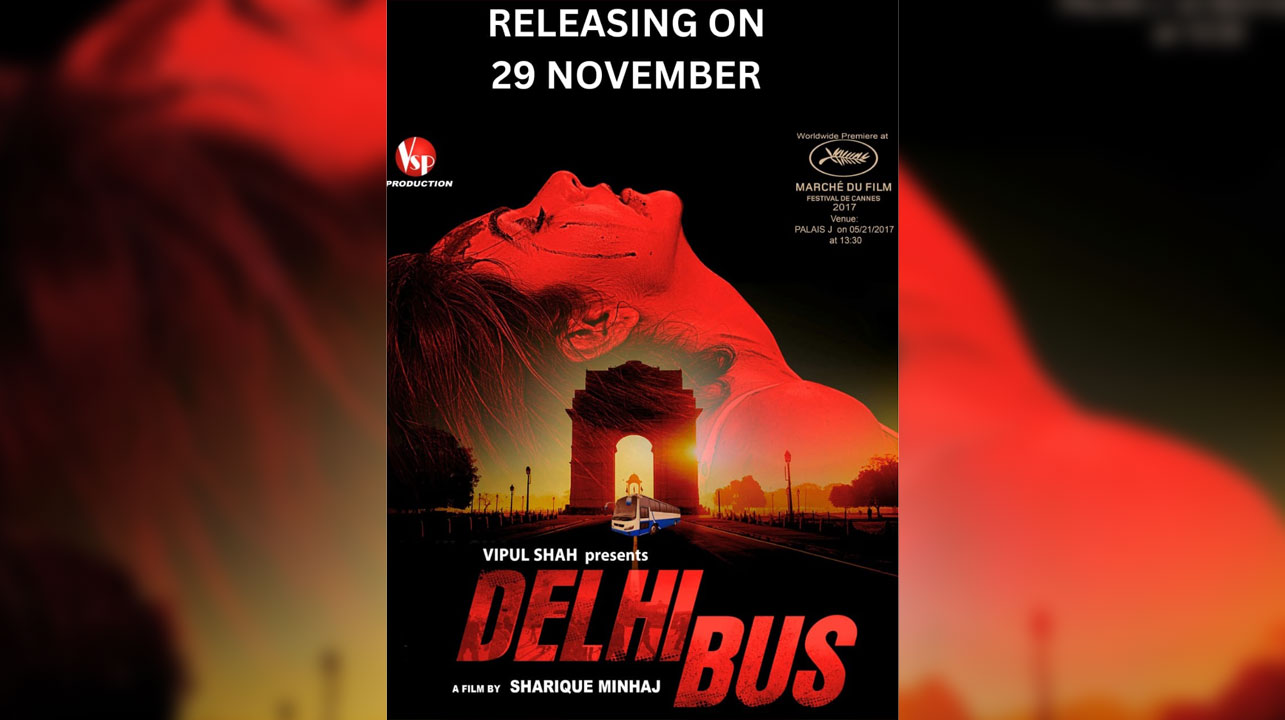Review : Delhi Bus – A Chilling Portrayal of a Tragic ‘Nirbhaya’ case!
In 2012 a gang rape and a gruesome murder of ‘#Nirbhaya’ rocked the country. There was an outcry across the nation and the issue of women safety was talk of the town. The incident inspired many film scripts, one of them being Delhi Bus. It is produced by #VipulShah under #VSPProductions and directed by #ShariqueMinhaj, is a harrowing cinematic recounting of the infamous 2012 Delhi gang rape case, a tragedy that shook the nation to its core. Drawing inspiration from real events, the film examines the deep scars left behind by the incident and questions the grim realities of women’s safety in modern India.
Opening with the gut-wrenching cries of a young girl, the narrative wastes no time in confronting the audience with the gravity of its subject matter. The story centers on Shruti Pandey (Divya Singh), a medical student who becomes the victim of a heinous act of violence. As she fights for her life in a hospital, the incident triggers a ripple effect, shaking the lives of those around her, including her close friend—who happens to be the daughter of a judge. Her chilling declaration, “I don’t want a daughter after this,” encapsulates the fear and helplessness that permeate the lives of countless women.
Through powerful courtroom sequences, Anjan Srivastav as the judge delivers some of the film’s most impactful moments. His judgment, which condemns the crime as a death of humanity itself, echoes the collective outrage of a society struggling to protect its women. Meanwhile, Neelima Azeem, as Shruti’s mother, delivers a poignant reminder that true justice will only be served when women feel safe, not just during the day but also at night.
Director Sharique Minhaj bravely tackles this sensitive subject, capturing the grim reality of the incident while sparking a broader conversation about societal attitudes toward women. However, some prolonged sequences in the bus could have benefited from tighter editing to maintain the film’s pacing. Delhi Bus serves as both a cinematic memorial to Nirbhaya and a stark reminder of the persistent dangers women face. Twelve years after the tragic incident, the film underscores how little has changed in terms of societal attitudes and safety for women.
Divya Singh portrays the victim, Shruti, with heartbreaking vulnerability, while Sanjay Singh as her supportive boyfriend, Avinash, adds depth to the narrative. Neelima Azeem’s performance as a grieving yet resilient mother stands out, while the supporting cast, including Mushtaq Khan and Kamaal Khan, deliver commendable performances that enhance the film’s emotional weight.
The music, composed by Babli Haque and Arav, resonates with the film’s tone. Songs like “Betehsha Udne Lage Hai Hum” and “Kyun Chala Gaya” evoke deep emotions, while the title track adds narrative momentum during pivotal moments. That said, the background score falls slightly short of delivering the immersive experience the subject matter demands. While the cinematography and editing could have been polished further, and the runtime slightly reduced, the film remains a bold and necessary commentary on an issue that continues to plague society.
Delhi Bus is a call for change, resonating long after the credits roll.
Rating : ***1/2
By Keerti Kadam


